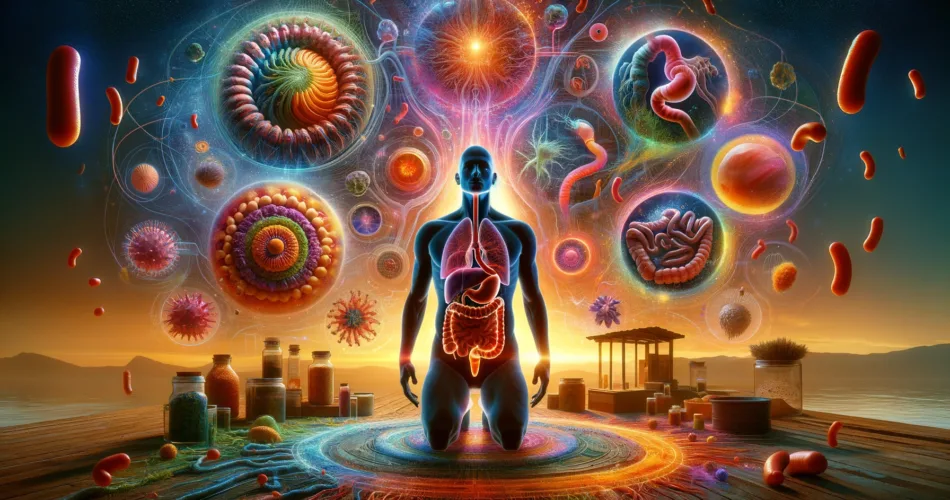The gut, an intricate and dynamic system, stands at the core of our very existence, not just as the center of digestion but as a profound reflection of our health, lifestyle, and even our environment. This complex network, stretching from the mouth to the colon, is not merely a passage for food but a sophisticated ecosystem that extracts energy, nurtures our body, and interacts with an unseen microbial universe within us.
The Gut: Our Internal Engine and Strainer
The digestive system, often envisioned as an engine or a tunnel, is where food is transformed into the energy that powers every cell in our body. This process begins with ingestion, the simple act of eating, which sets off a series of meticulously choreographed steps that break down food into its most elemental form: glucose. This glucose then fuels our day-to-day activities, from the most mundane tasks to extraordinary feats of endurance, such as ultra-marathons.
The Vital Role of the Microbiome
Within our gut resides a vast and diverse community of bacteria, the microbiome, which plays a critical role in our health far beyond digestion. These trillions of microbial inhabitants are essential for breaking down food, synthesizing vitamins, and even protecting against harmful pathogens. Remarkably, our microbiome is not static; it changes based on diet, lifestyle, and exposure to the environment, underscoring the dynamic interplay between our bodies and the microscopic world within.
Fueling the Extraordinary: The Ultra-Marathoner’s Digestion
For an ultra-marathon runner, the gut’s ability to process and extract glucose from food becomes a critical factor in endurance. The journey of food through the digestive system, from ingestion to the absorption of glucose into the bloodstream, is a delicate balance. Runners like Shaun Martin rely on traditional, energy-dense foods like blue corn mush, which provide the necessary fuel for their grueling races, showcasing the gut’s remarkable capacity to support human resilience and performance.
Fasting: The Ancient Practice with Modern Benefits
Fasting, an ancient ritual rooted in various cultural and religious practices, has been shown to offer profound health benefits. By temporarily abstaining from food, we allow our digestive system to rest, potentially improving cognitive function and reducing the risk of chronic diseases. Intermittent fasting, adopting periods of eating with intervals of fasting, has emerged as a modern adaptation of this age-old practice, promoting a mindful and disciplined approach to consumption.
Allergies: When Food Becomes Foe
Food allergies represent a complex immune response where the body mistakenly identifies certain foods as harmful. This misidentification triggers a cascade of reactions that can range from mild discomfort to life-threatening conditions like anaphylaxis. Understanding the gut’s role in developing and potentially treating allergies is a frontier in medical science, highlighting the delicate balance of our immune system and the importance of nurturing a healthy gut microbiome.
Conclusion: Nurturing Our Internal Garden
The human gut is more than just a site of digestion; it is a reflection of our interaction with the world around us. From the foods we choose to the environments we inhabit, every aspect of our lives influences this complex system. By adopting practices that promote gut health, such as consuming a diverse, plant-rich diet and embracing beneficial microbial exposures, we can cultivate a vibrant internal ecosystem. Just as a gardener tends to their garden, we too must nurture our gut, ensuring it remains a source of vitality and well-being.

